Swiss interior minister warns over ‘imported’ anti-coronavirus movement
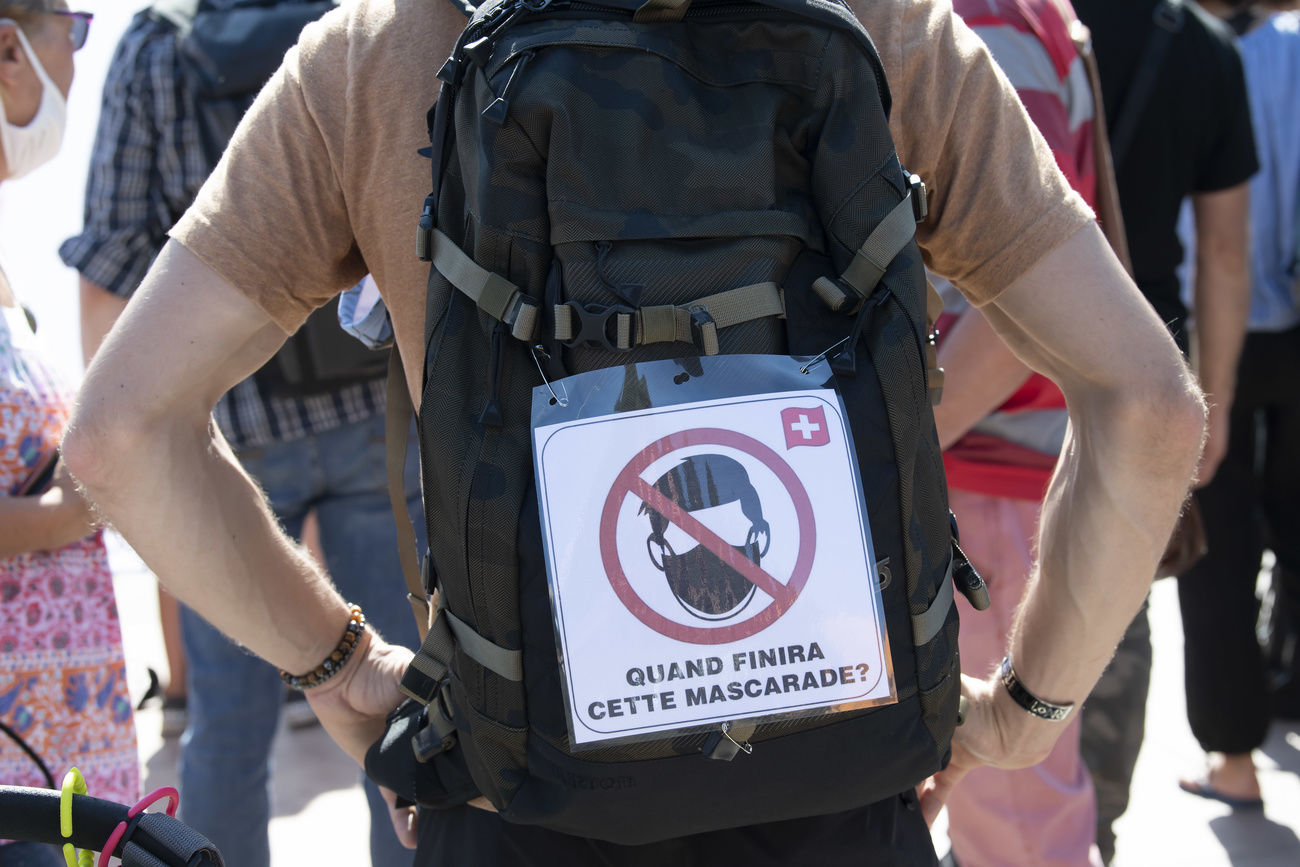
Interior Minister Alain Berset has defended Switzerland's coronavirus strategy against criticism from Covid-19 sceptics. He warns that the protest movement in the Alpine nation is being partly imported from abroad.
“It’s clear that a movement is being built here against our fact-driven and democratic society,” Berset told SonntagsZeitungExternal link in a lengthy interview on Sunday.
On Saturday, an anti-corona demo in Geneva attracted 1,000 protesters. This follows a similar, but smaller, rally in German-speaking Switzerland the previous weekend.
Corona sceptics in Switzerland are a mixed group – a “noisy minority” – with diverse ideologies coming together, including “rightwing extremists, radical anti-vaccination campaigners and obscure conspiracy theorists”, said Berset.
“Some of the anti-corona movement seems to be imported from abroad,” he declared, explaining that he had seen examples of anti-corona videos in Switzerland which originated from Germany and the United States.
Berset said he welcomed “fact-based discussions” over the dangers of the virus and Swiss measures.
“But I have little sympathy for the current tendency to deny the virus, which is causing much suffering worldwide, and even accuse the authorities of dictatorial behaviour. That is absurd. Switzerland is one of the more liberal countries when it comes to corona measures,” he declared.
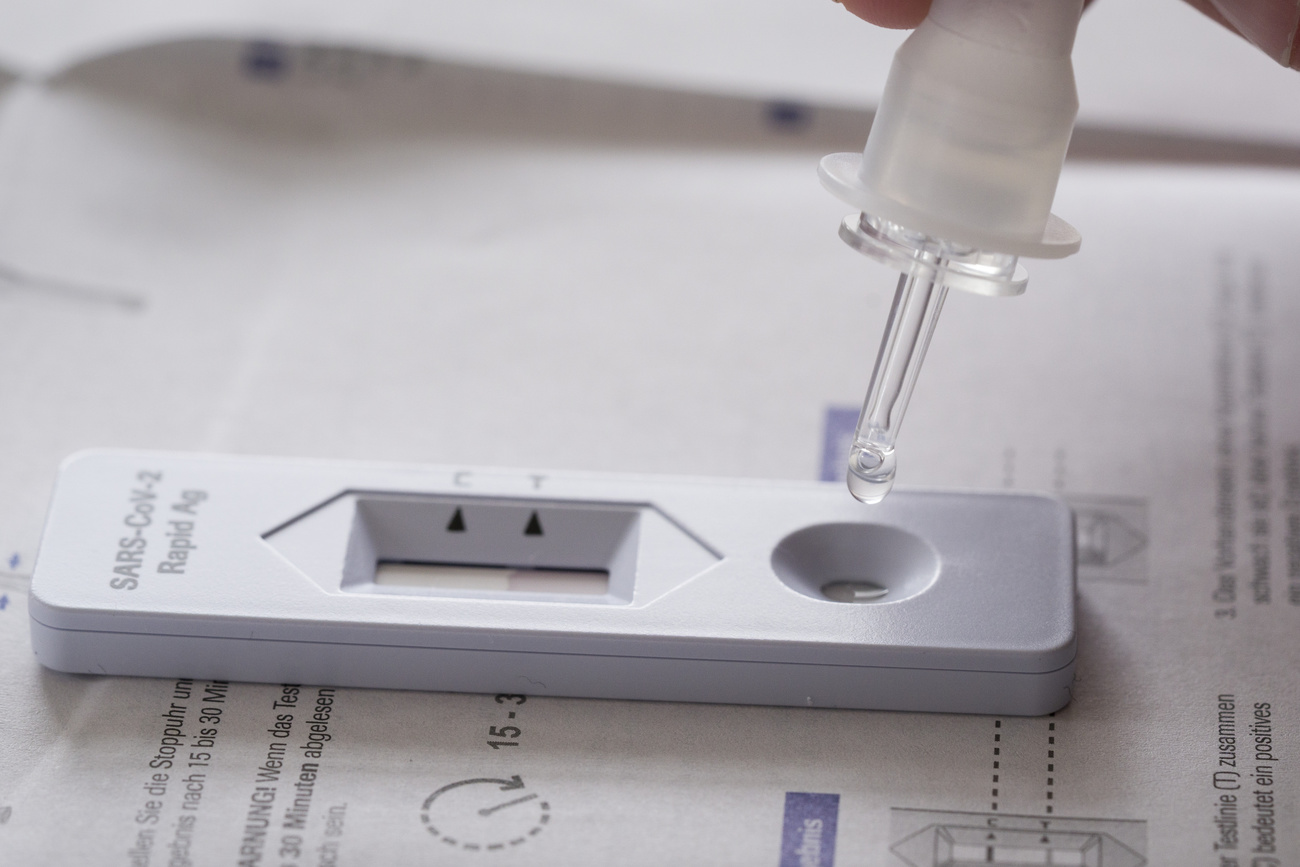
More
Coronavirus: the situation in Switzerland
Swiss strategy
After imposing unprecedented restrictions on public life to contain the pandemic in spring, Switzerland has eased its measures and re-opened its land borders. But since mid-June there has been a worrying rise in new cases of Covid-19.
Face masks are now mandatory on Swiss public transport. The federal government is leaving it up to cantons to decide how far they should go with mask mandates, although it has encouraged cantons to require them in closed public places.
Berset admitted that there had been “inconsistencies”, especially at the beginning of the pandemic and “communication glitches”. But he said the government had received great support from the Swiss public.
“We implemented the law on epidemics passed by the people. In addition, the Federal Council has always acted with a sense of proportion, always giving the needs of society and the economy the highest possible priority. Epidemiologists accuse us of having been too hesitant in issuing the restrictions and then too brisk in reopening them. It is nonsensical and dishonest to accuse us of dictatorial behaviour now. I have no sympathy for this,” he said.
Avoid second lockdown
Switzerland has witnessed a rise in new cases in recent weeks. On September 12, the seven-day average for Switzerland reached 373.7 new cases per day, which is a 19% increase from the previous week. On September 13, the Federal Office of Public Health recorded 475 new infections across the country – Vaud, Zurich, Geneva, Fribourg, Bern and Aargau are the worst-affected cantons.
“We are not experiencing exponential growth at the moment. The case numbers are high, but are growing much more slowly than in the spring,” he said.
“At the moment we have fewer hospitalisations and fewer deaths in relation to the number of cases. The virus currently circulates more in younger generations, where there are far fewer vulnerable people… we must also ensure that the virus does not spread to older generations.”
The minister warned that the fight against the virus would go on “for a long time”.
“After the relaxation phase there will probably be a phase that will require more discipline from us again. I am convinced that this discipline can be mobilised again very quickly if the situation worsens again,” he declared.
But a second lockdown must be prevented “at all costs”, said Berset: “We must succeed in preventing this with easier, more targeted and, if possible, regional measures and good contact tracing.”
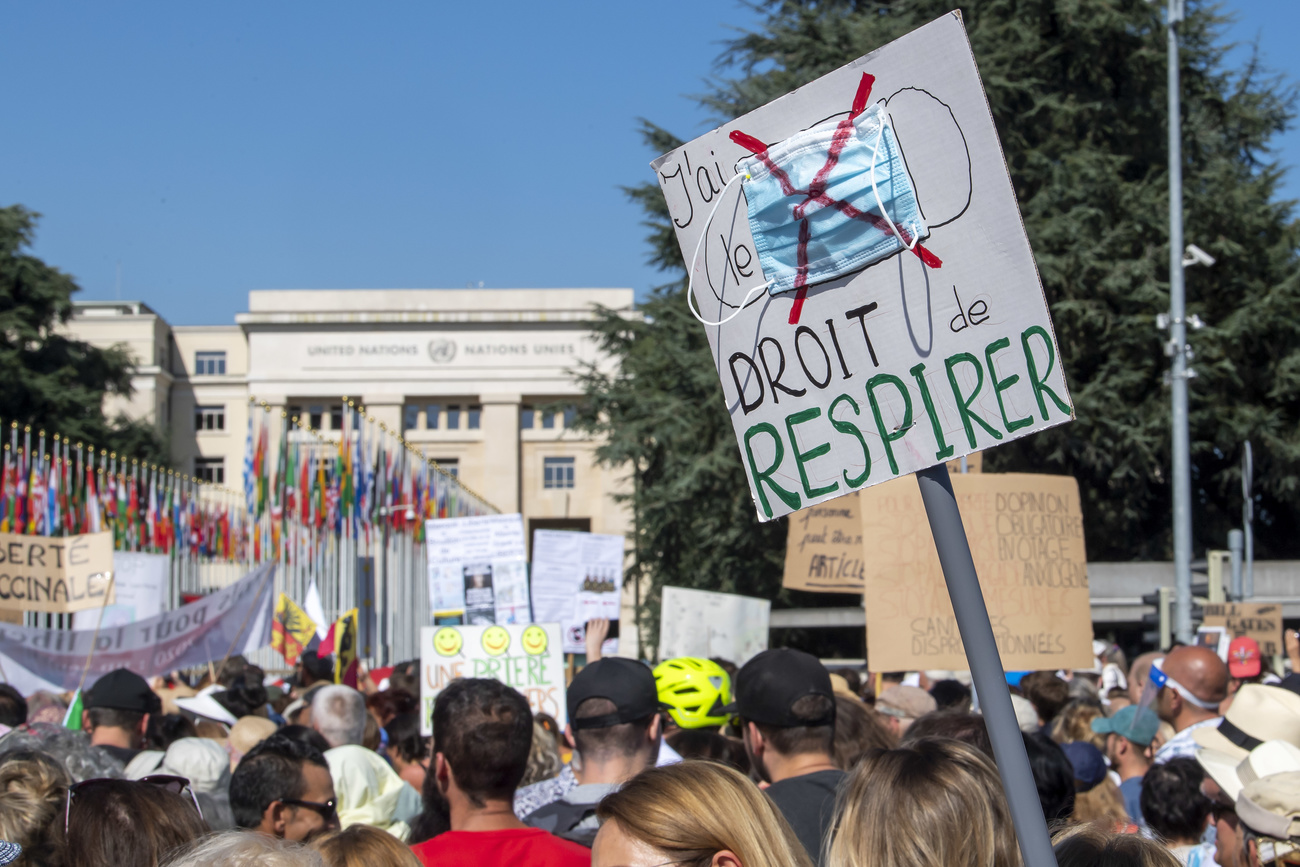
More
Geneva anti-mask demo attracts 1,000 protesters

In compliance with the JTI standards
More: SWI swissinfo.ch certified by the Journalism Trust Initiative
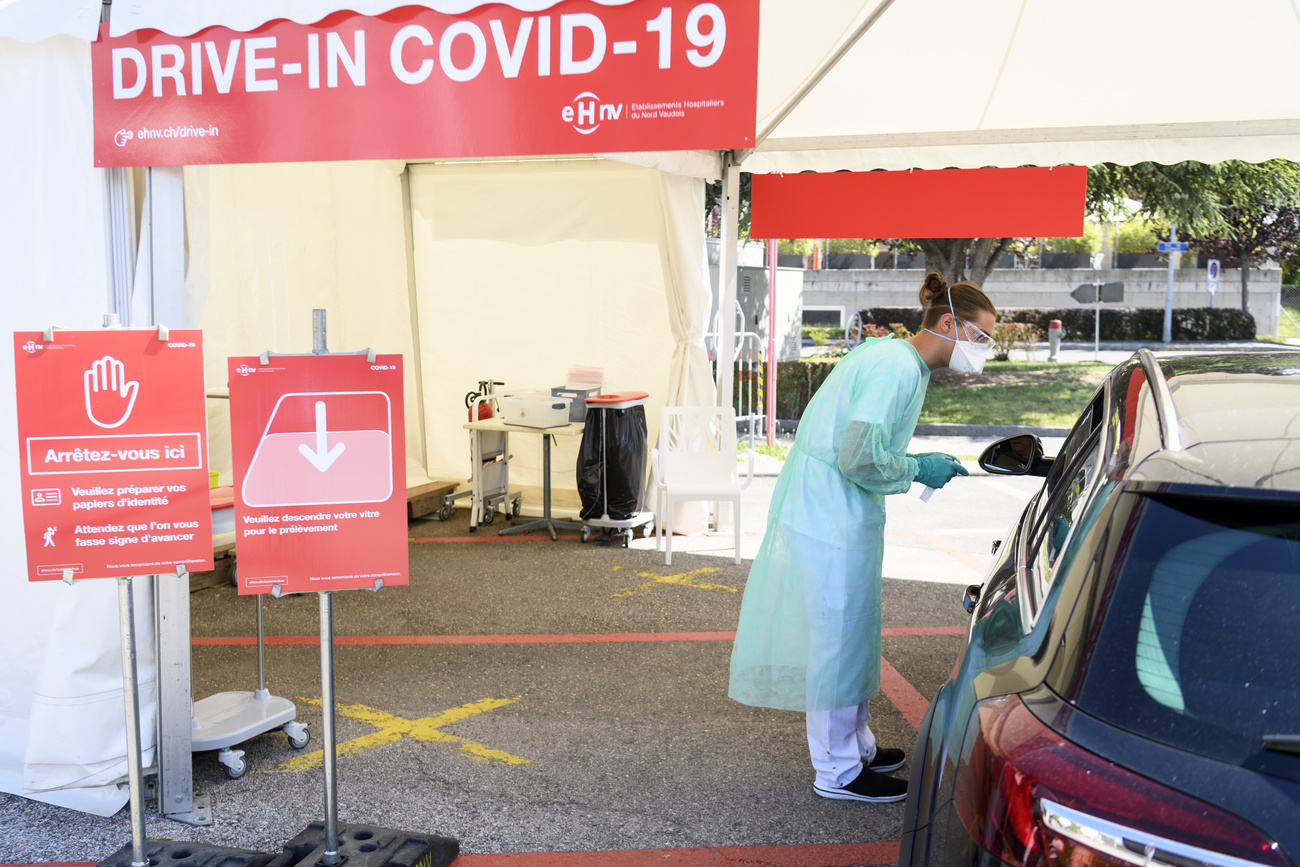
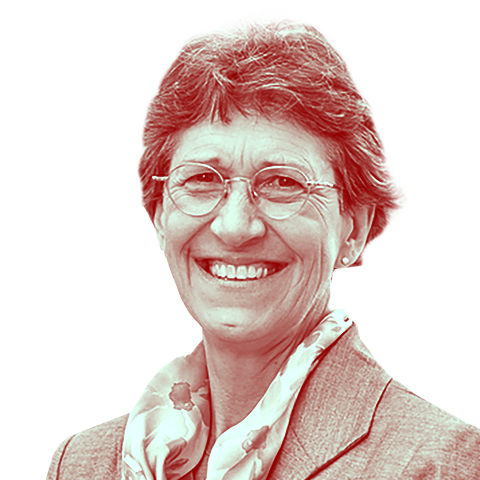
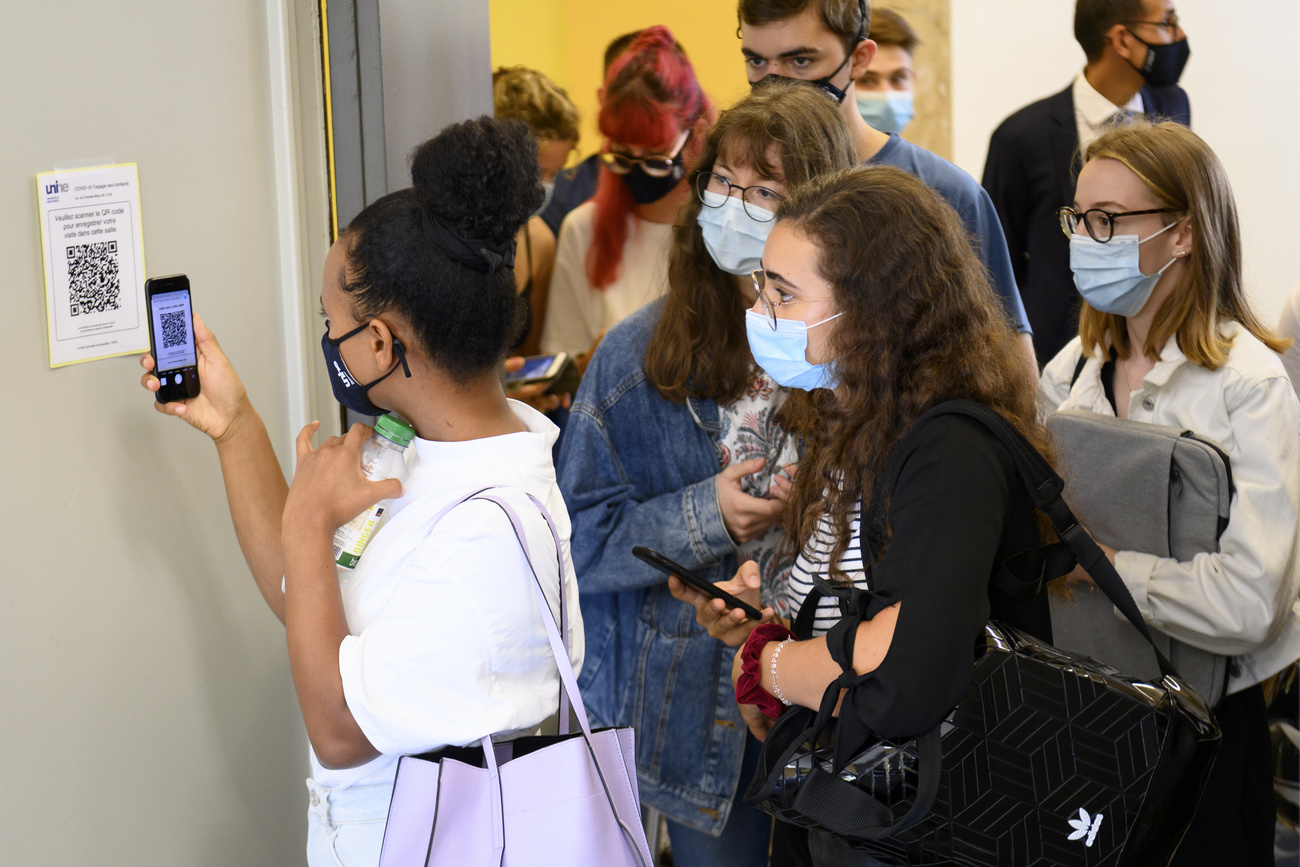
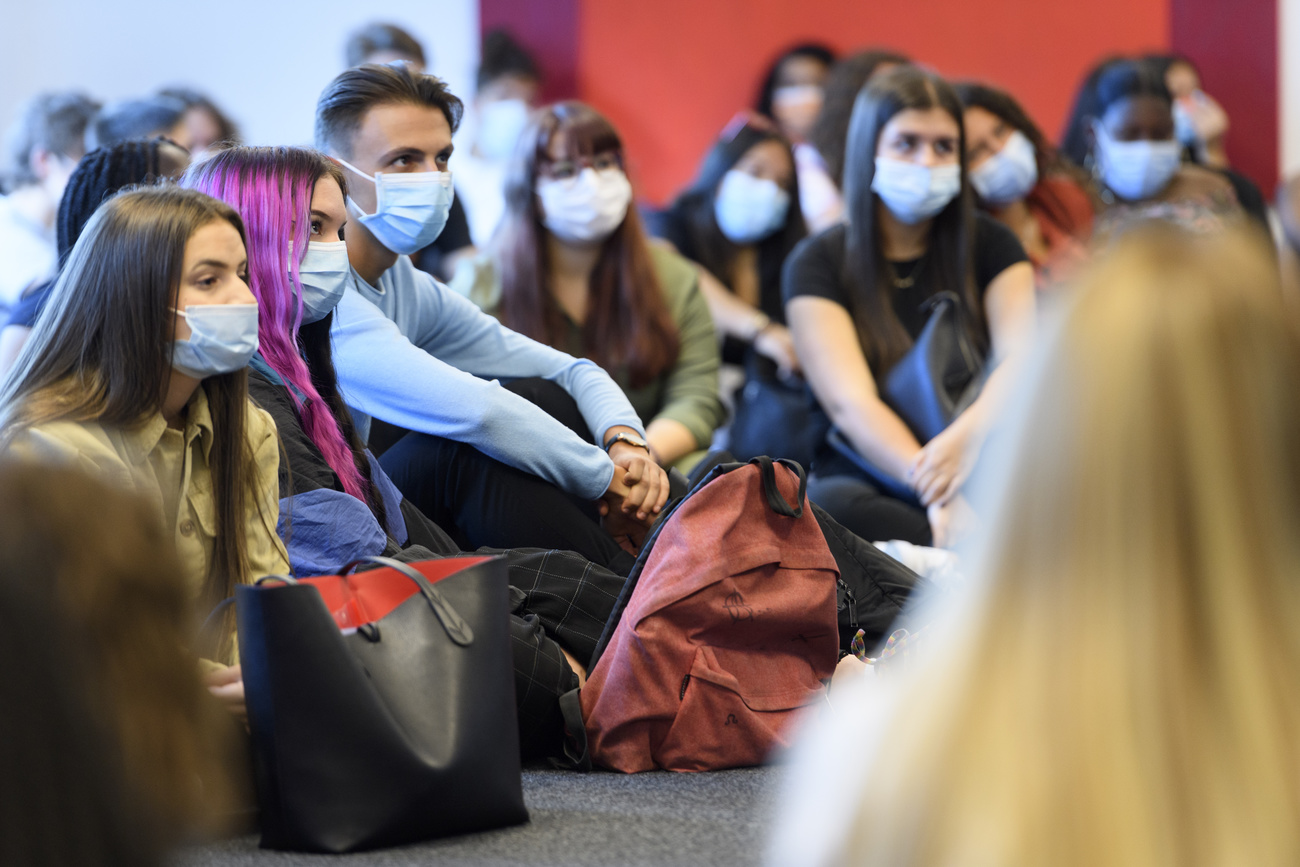
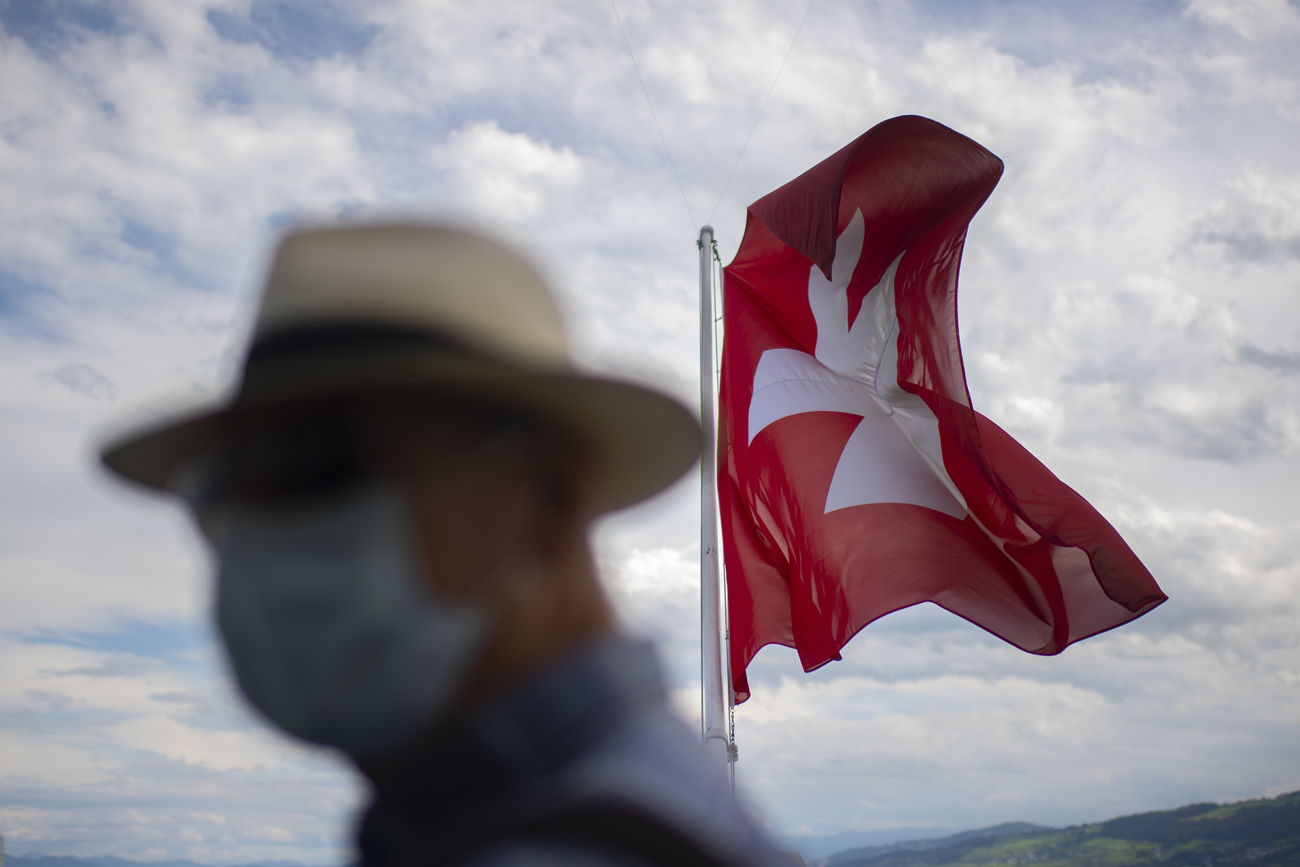
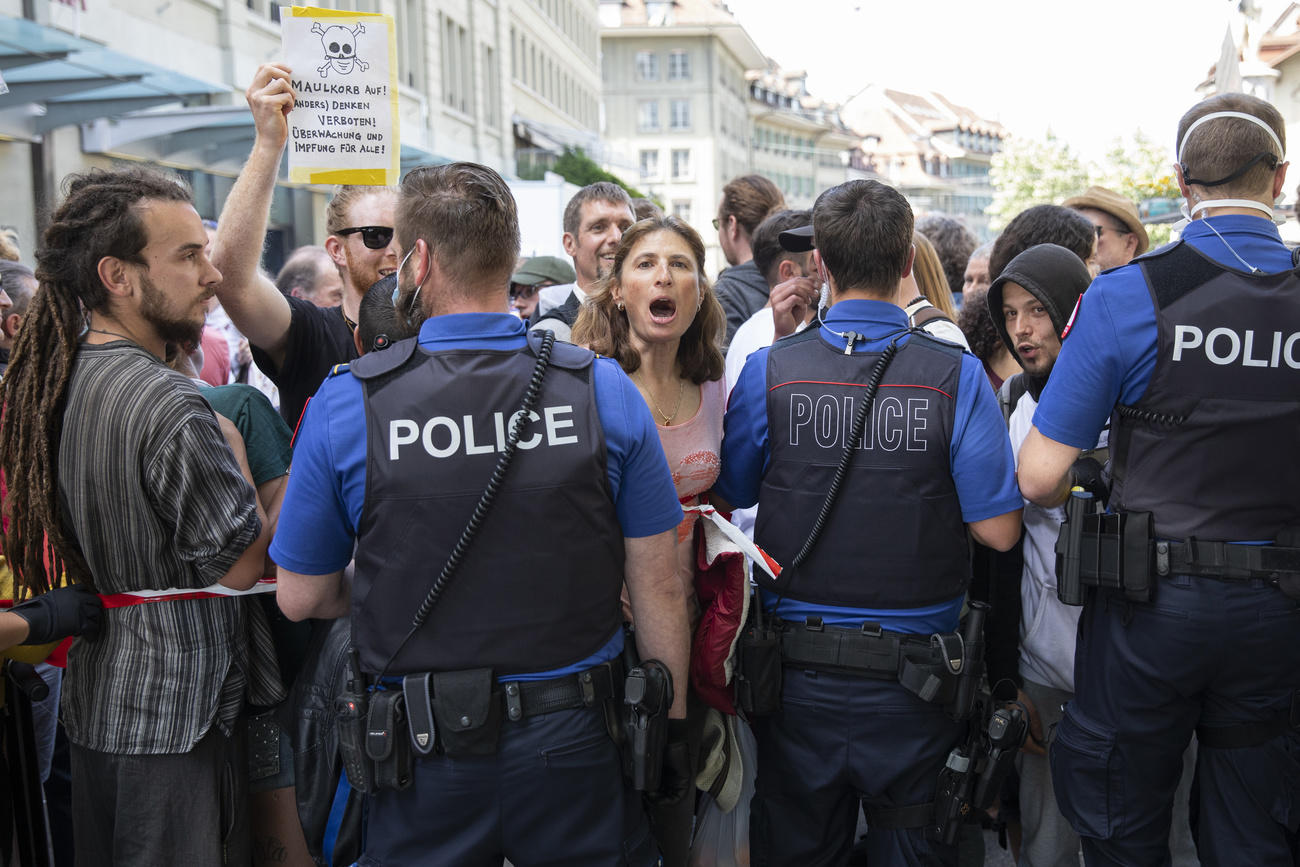
You can find an overview of ongoing debates with our journalists here. Please join us!
If you want to start a conversation about a topic raised in this article or want to report factual errors, email us at english@swissinfo.ch.